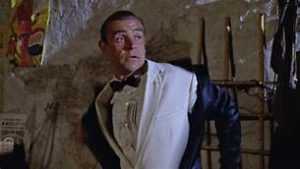…is the title of an excellent book by American Lynne Olson (Scribe, 2018). It tells the story of WWII – a popular topic on my blog right now – but from the perspective of those Europeans who, after the Nazi Blitzkrieg of 1940, were forced into exile in Britain. From monarchs like the serious-minded Haakon of Norway ( the elected King ) to Queen Wilhemina of the Netherlands, whose small grand daughters were not allowed to listen to their Grandma’s fiery broadcasts against the Nazis because the language was too ripe, they came to London, with their subjects and thousands of others, Poles, Czechs, Jews of all nations and, eventually, French, who flocked to the only place left in Europe not under Nazi (or fascist) domination.
the perspective of those Europeans who, after the Nazi Blitzkrieg of 1940, were forced into exile in Britain. From monarchs like the serious-minded Haakon of Norway ( the elected King ) to Queen Wilhemina of the Netherlands, whose small grand daughters were not allowed to listen to their Grandma’s fiery broadcasts against the Nazis because the language was too ripe, they came to London, with their subjects and thousands of others, Poles, Czechs, Jews of all nations and, eventually, French, who flocked to the only place left in Europe not under Nazi (or fascist) domination.
Britain and the British certainly welcomed them, in that they were met with kindness and sympathy (and material help) but it didn’t really accept them, at least initially. The RAF, offered experienced Polish pilots, insisted on scattering them around different squadrons, until the Poles formed their own, most famously 303 Squadron. It was not until the darkest hours of the Battle of Britain, when almost all hope had been lost, that they were allowed to fly operationally. When they did they were astonishingly successful. In only six weeks of fighting Squadron 303 shot down 126 enemy planes, more than twice as many as any other RAF squadron. Fellow pilots were unstinting in their admiration, ‘they are better than any of us’ they said and even the top brass was won round.
Continental nationals formed the backbone too of the spy network set up to infiltrate Nazi dominated Europe, linking with existing resistance  networks. There were some remarkable characters, like the young Dutchman Peter Tazelaar, who arrived, having been dropped off by a fishing boat, in The Hague in 1941 wearing a wet-suit. He stripped it off to reveal a white tuxedo, took out a bottle of cognac, drank some and sprinkled the rest on his clothes, then walked through an elegant seaside hotel full of German officers to catch a tram. Years later, Tazelaar’s exploit inspired the makers of Goldfinger to have James Bond do the same at the beginning of their film.
networks. There were some remarkable characters, like the young Dutchman Peter Tazelaar, who arrived, having been dropped off by a fishing boat, in The Hague in 1941 wearing a wet-suit. He stripped it off to reveal a white tuxedo, took out a bottle of cognac, drank some and sprinkled the rest on his clothes, then walked through an elegant seaside hotel full of German officers to catch a tram. Years later, Tazelaar’s exploit inspired the makers of Goldfinger to have James Bond do the same at the beginning of their film.
I learned so much from reading this book and I thoroughly enjoyed the read. The whole Enigma story, which I thought I had known, was revelatory – as with the Polish pilots, British code breakers were very unwilling to credit what their continental counterparts were doing, until they began to appreciate just how clever they were. Alan Turing and the Bletchley crowd weren’t the only people who cracked the code.
The development of the BBC too was  terrifically interesting, which is mentioned in Last Hope, but brings me to my second book, Edward Stourton’s Auntie’s War (Doubleday, 2017). This focuses exclusively on the role of the BBC just before and during WWII, including the ground breaking ‘live’ reports as well as the severely government controlled news service ( at least initially, before the amazing decision to simply broadcast the truth – still astonishing even today, let alone in war-time and the reason why the BBC acquired its reputation and was trusted across occupied Europe ). Its pages are peopled by characters, from the barely known, like Harman Grisewood to the newly famous, like Wilfred Pickles, both of whom were BBC war-time announcers.
terrifically interesting, which is mentioned in Last Hope, but brings me to my second book, Edward Stourton’s Auntie’s War (Doubleday, 2017). This focuses exclusively on the role of the BBC just before and during WWII, including the ground breaking ‘live’ reports as well as the severely government controlled news service ( at least initially, before the amazing decision to simply broadcast the truth – still astonishing even today, let alone in war-time and the reason why the BBC acquired its reputation and was trusted across occupied Europe ). Its pages are peopled by characters, from the barely known, like Harman Grisewood to the newly famous, like Wilfred Pickles, both of whom were BBC war-time announcers.
Stourton’s book is a paean for radio, a love poem to the wireless and, it must be said, to the BBC of that era. It brings home just how many of our ideas about that time are formed by radio broadcasts – Churchill’s speeches, the report from a Lancaster bomber, Dimbleby’s as Belsen is liberated, Chamberlain’s declaration. An excellent, if partisan, history of an astonishing institution, whatever one thinks about today’s version.
For more about books try History Writing Novels Historical Short Stories Two Novels Historical Thrillers Historical Lincoln in the Bardo Summer Books


 RSS – Posts
RSS – Posts